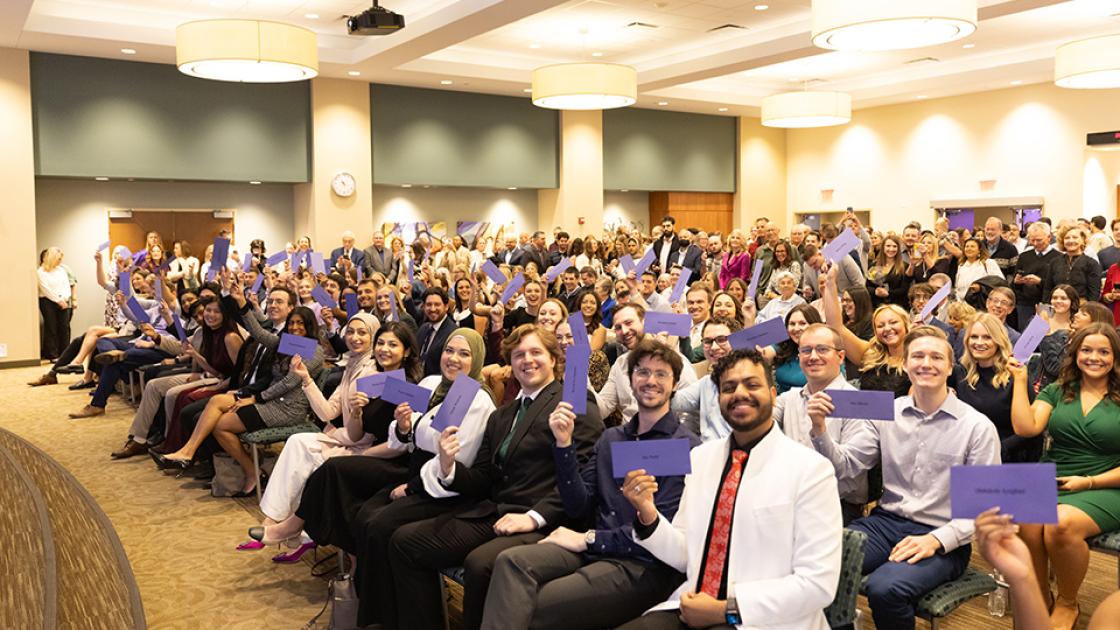
Doctor finds care close to home
At the May 2021 SIU commencement, Dr. Rik Constance was noticeably hoarse. As Associate Dean of Students and Admissions, he dutifully read the names of each of the 70 graduates. He also gave a short speech after receiving the belated Distinguished Alumni Award for 2020.
He chalked up his scratchy throat to allergies, something that was aggravated by the warm outdoor ceremony. Due to COVID precautions, this year it was held on Sacred Heart-Griffin High School’s Cyclone Field in Springfield.
After the gathering, a faculty member’s wife questioned Dr. Constance’s self-diagnosis. Carol Varney is a speech pathologist whom Constance had known for 30 years. “She said it wasn’t allergies, and I should have it looked at by an ENT specialist as soon as possible, to make sure there’s nothing more going on,” he said.
Constance sought out Sandy Ettema, MD, PhD, faculty at SIU’s Department of Otolaryngology-Head and Neck Surgery in Springfield. Ettema is a fellowship-trained laryngologist with a PhD in speech pathology, which fed her career as an otolaryngologist and ultimately, to the specialty of laryngology. Dr. Ettema’s flexible laryngoscopic examination revealed a polyp on Dr. Constance’s vocal cord, and surgery for removal was scheduled.
As he shared the news of his diagnosis, he was surprised when some peers asked him why he wasn’t heading to Minnesota’s Mayo Clinic or Barnes-Jewish Hospital in St. Louis to have the procedure done.
“I told them as far as I was concerned, we have some of the best subspecialists in the entire country right here in Springfield. Really, the best laryngologists in the tri-state area are next door to where I work,” he said. “Why travel if I can do the surgery and recovery locally, get great care and not be separated from my loved ones?”
The outpatient procedure was performed at Baylis Medical Building 17 days after the ceremony. The prognosis: “Everything looked good at the follow-up laryngoscopy, it couldn’t have gone better,” he said. Dr. Ettema told Constance to speak normally during the recovery period; whispering and shouting were off-limits because those two ranges place the greatest stress on the vocal chords.
He is now back to his usual tenor, and continues speaking highly of his colleague in otololaryngology.



